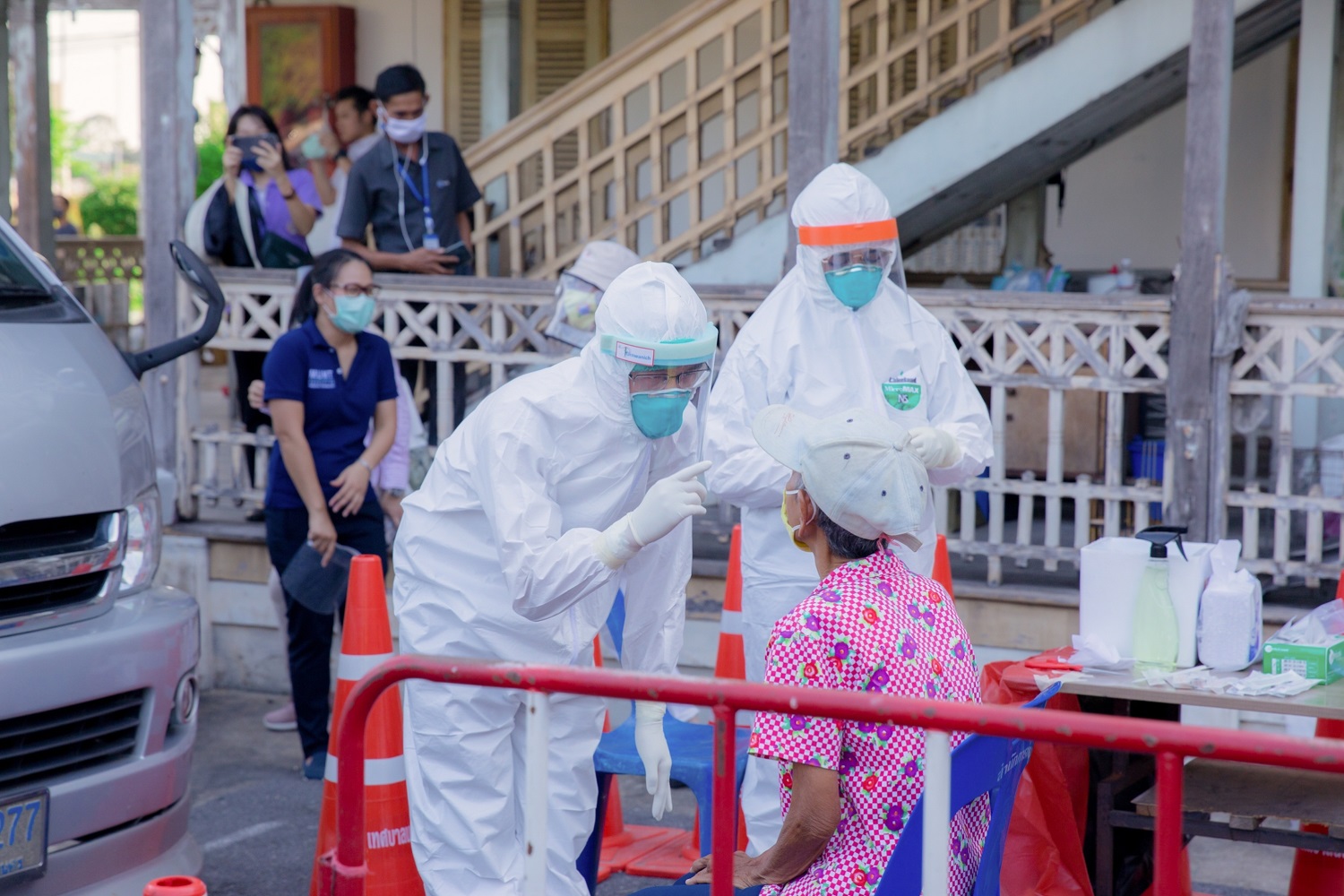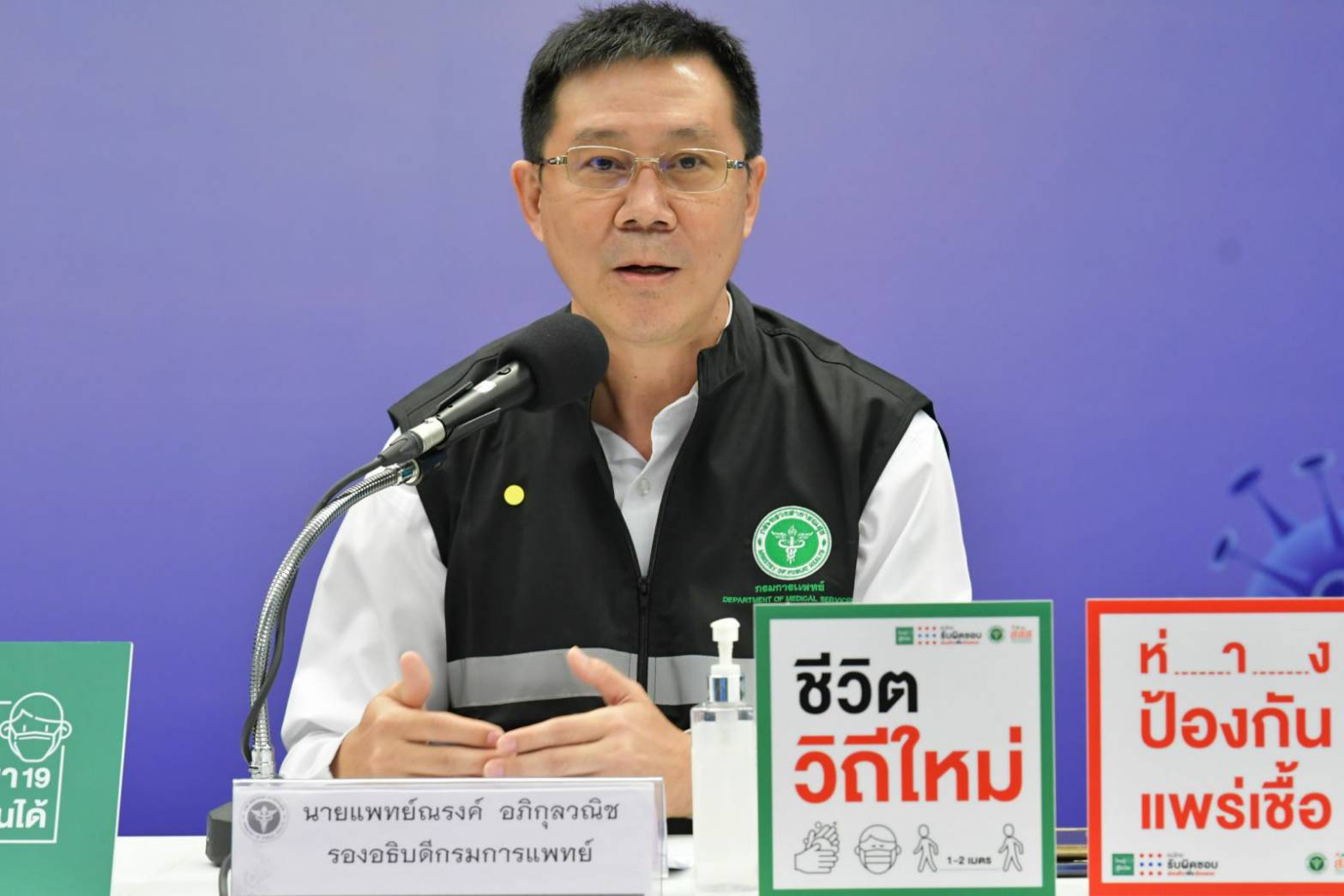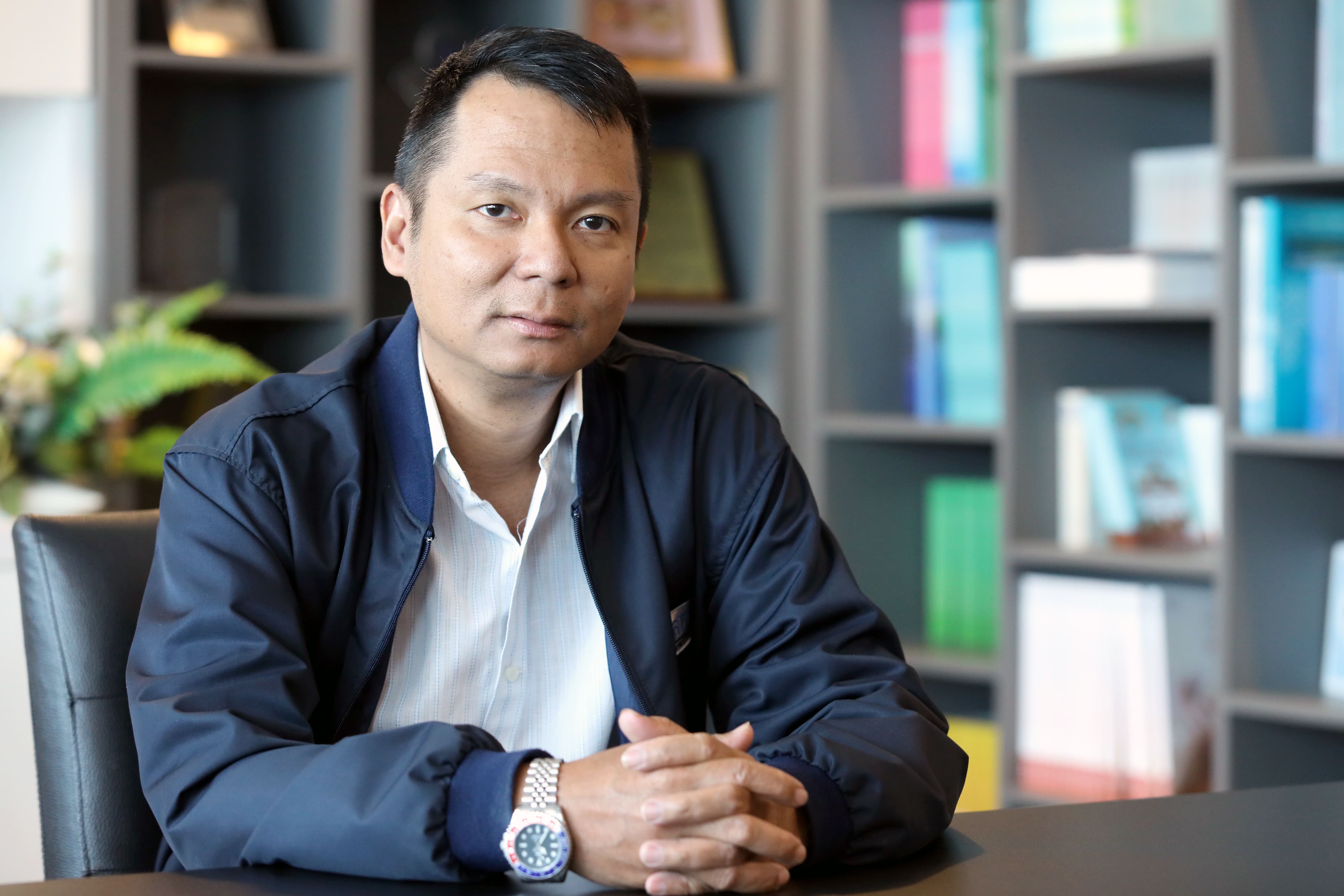
- Home
- DescriptionNews
Thai government prepares for the New-emerging phase COVID-19

Thai government prepares for the New-emerging phase COVID-19
The number of new COVID-19 cases in Thailand have recently skyrocketed after months of calm.
In Mid-December, Thai authorities found a new coronavirus cluster in migrant laborers working in a wholesale seafood market of Samut Sakhon Province. The virus has spread to other provinces across Thailand since then.
Amidst fear of the New-emerging phase, Thai government has pulled both financial and human resources and put them into health emergency response --- allowing health workers, local governments and communities to conduct disease surveillance, find suspected cases, and tested people with high potential exposure to the coronavirus.
Here is a summary of what Thailand has done to prepare and tackle the New-emerging phase
Set up COVID-19 emergency response funds
Thai government has allocated nearly three-billion-baht to National Health Security Office (NHSO) to fight COVID-19. The budget which is under a one-trillion-baht emergency loans decree, will cover the expenditure of the coronavirus healthcare services and health benefits in the first half of 2021.
NHSO, which acts as a National Clearinghouse for the government’s healthcare schemes, plans to spend 2.23 billion baht of the budget on healthcare services such as COVID-19 prevention services (1.97 billion baht) and treatment (230 million baht).
Other 771 million baht will cover influenza vaccination program (318 million baht), compensation for health workers affected by COVID-19 (87 million baht) and the Universal Coverage Scheme’s benefits for unemployed persons (366 million baht).
.jpg)
NHSO Secretary-General Dr Sakchai Kanjanawatana encourages Thai hospitals to provide healthcare services to everyone regardless of their race.
The budget provided under the emergency loans decree will cover the cost incurred from COVID-19 emergency response, including inpatient and outpatient services, ICU, lab test, Personal Protective Equipment (PPE) for health workers, Isolate room operations, patients’ quarantines and their meals, medication, and inter-hospital patient transfer.
More than 155,800 people were tested for coronavirus from October to December last year, equivalent to 468-million-baht reimbursement. Around 4,880 people received COVID-19 healthcare services, equivalent to 148-million-baht reimbursement.
Disease Control Department has set a budget for the coronavirus testing in migrant worker populations.
Prepare health facilities to meet people’s needs
Public Health Ministry has prepared hospitals and health workers for possible future outbreaks of COVID-19.
In Public Health Office Region 6th, covering eight provinces in central and eastern Thailand, the 10-100-1,000 strategy is designed to help healthcare systems cope with a potential new outbreak.
Ten stands for the numbers of total negative pressure rooms required in each province. 100 means the number of available beds in isolation wards, and 1,000 refers to the total number of beds required in field hospitals.
Hospitals in each province must prepare 100 to 200 additional beds for COVID-19 patients in a recovering stage. They work in large networks by sharing information and resources during the pandemic.

Dr Narong Aphikulwanich from Public Health Office Region 6th explains that the number of COVID-19 patients depends on the effectiveness of disease surveillance and suspected case finding.
Provide resources to local governments and communities
Local Administrative Organizations (LAOs) can request COVID-19 emergency project from Community Health Fund (CHF), the NHSO’s program for empowering local government and communities as well as encouraging them to initiate health promotion and disease prevention activities.
The past activities include community-based active case finding, alcohol gel and face masks distribution to residents, and the compensations for Village Health Volunteer networks.

Dr Peeramon Ningsanond, Director of NHSO Region 6 Rayong, said that NHSO had supported local health workers, administrative official, LAOs and civil society groups in tackling COVID-19.
They can work with a full effort as they don’t need to feel worried about their access to available resources.
Secure COVID-19 vaccines
In November last year, Ministry of Public Health signed an advance agreement with a British-Swedish pharmaceutical firm AstraZeneca to secure a supply of its COVID-19 vaccines.
The agreement is for the purchase of 26 million doses, for 13 million people. AstraZeneca will also support the local mass production of the vaccines by Siam Bioscience, a Thai pharmaceutical manufacturing company.
Anutin Charnvirakul, Deputy Prime Minister and Public Health Minister said that Thailand would receive COVID-19 vaccines by mid-year, before the Thai company can start local production.
Thai cabinet gave a green light to Public Health Ministry to purchase two million doses from China-based Sinovac, which will arrive in Thailand in February. They will be given to frontline healthcare workers and high-risk population groups.

